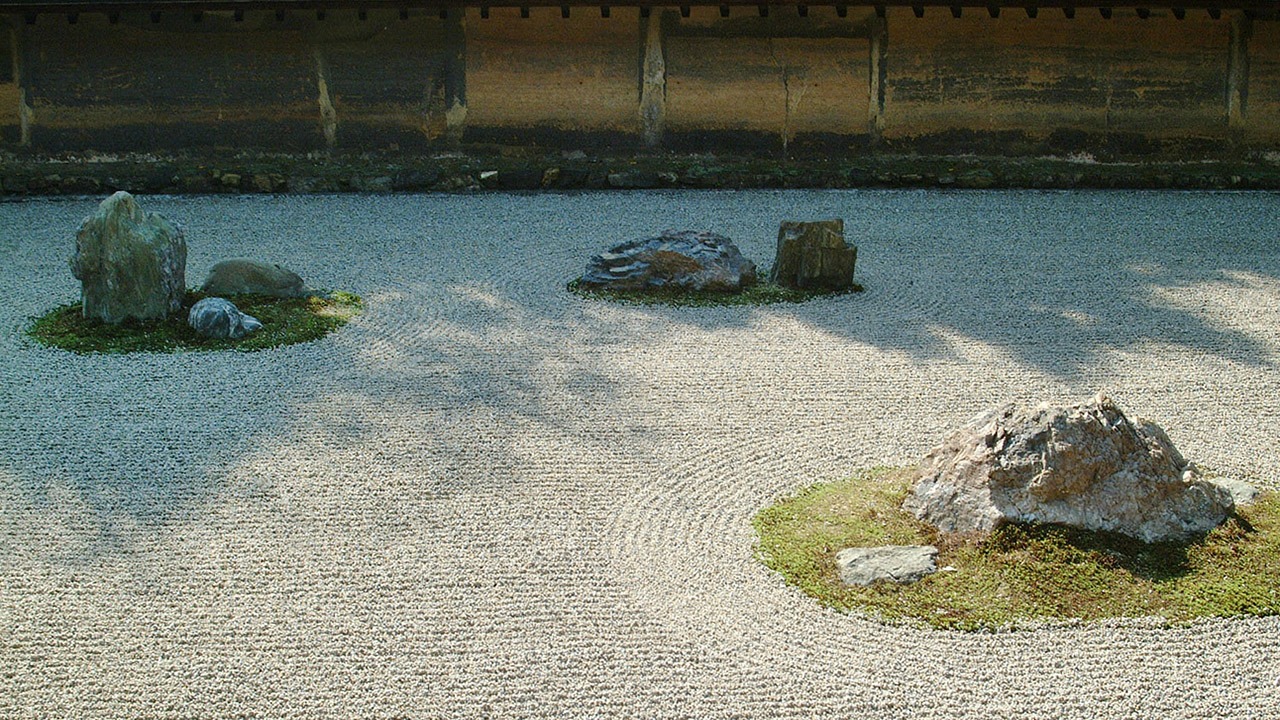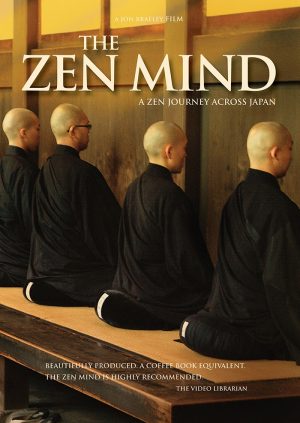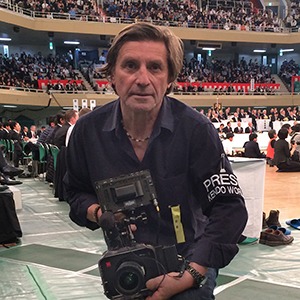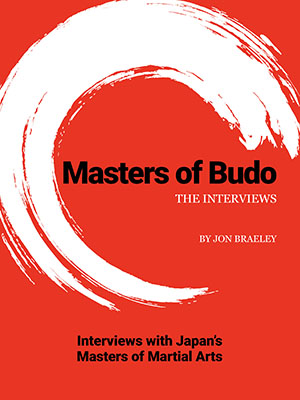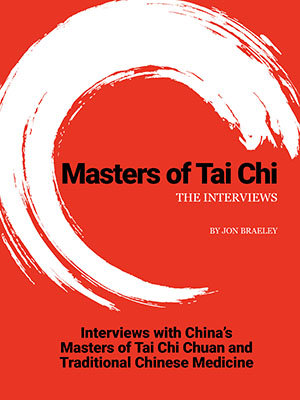The famous Ryōan-ji zen garden in Kyoto. Photo by Jon Braeley
Introduction
This blog is not meant as a step by step guide to mastering zen meditation. I am no zen master! However, I have held an interest in Zen that began in my twenties when I discovered Alan Watts books and started listening to his lectures. Decades later I spent a wonderful day with his son, Mark Watts in Sausalito, San Francisco, who, after lunch, gave me a tour of the house boat that his father called home. A few weeks later, Mark sent me all of his father’s broadcast tapes and CD’s of his lectures to use in my work. You can read more of Alan Watts in this post. Mark Watts runs the official Alan Watts website.
I have a vast collection of books on zen, including many Alan Watts books of course, but also I recommend one of my favorites, Three Pillars of Zen by Roshi Philip Kapleau. Whenever I am in Japan I try to visit Kyoto and return to my favorite Zen temples to gaze upon the zen gardens. For this, I recommend a book given to me by a Kyoto resident and scholar of Zen temples, John Einarsen, titled Zen and Kyoto. Finally I will add one more book, Zen Ritual by Heine Wright to my list, although I am very prejudiced as Oxford University Press chose one of my photographs as the book cover. Photograph is shown below of monks in zazen at Soji Zen temple.
Before you continue with an interest in Zen meditation I would warn you that mastering the art of Japanese Zen Meditation requires considerable patience, focus, and dedication. Not unlike the practice of martial arts!
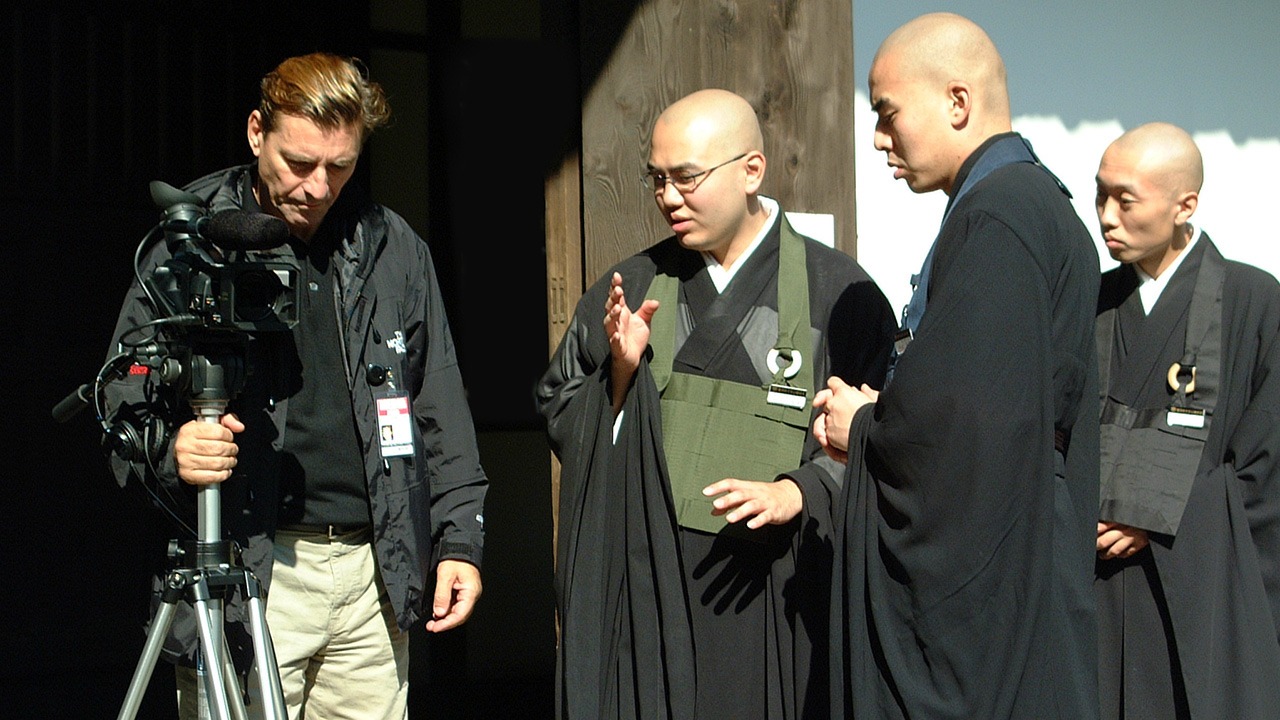
Jon Braeley filming at the Shoji-ji (Zen temple) in Japan
The Basics of Japanese Zen Meditation
Mastering the art of Japanese Zen meditation can bring a sense of calm and clarity to your life. This centuries-old practice focuses on mindfulness and presence, helping individuals to cultivate a deep sense of inner peace. Whether you are new to meditation or looking to enhance your existing practice, understanding the basics of Japanese Zen meditation and incorporating practical tips can help you achieve a more profound meditative experience.
In Japanese Zen meditation, the role of the teacher, or Zen master, is crucial in guiding practitioners and deepening their meditation experience. Zen masters provide instruction on proper posture, breathing techniques, and mind control. They also offer individualized guidance to help practitioners overcome common obstacles such as restlessness, boredom, or wandering thoughts. By following the guidance of a Zen master, practitioners can deepen their understanding of meditation and progress on their spiritual journey. In extreme zazen practice, the Roshi (zen master) will use a wooden stick or kyosaku, often called the awakening stick. The stick is used to adjust the sitters posture and perhaps, if tiredness sets in, wack them on the shoulders to wake them up!
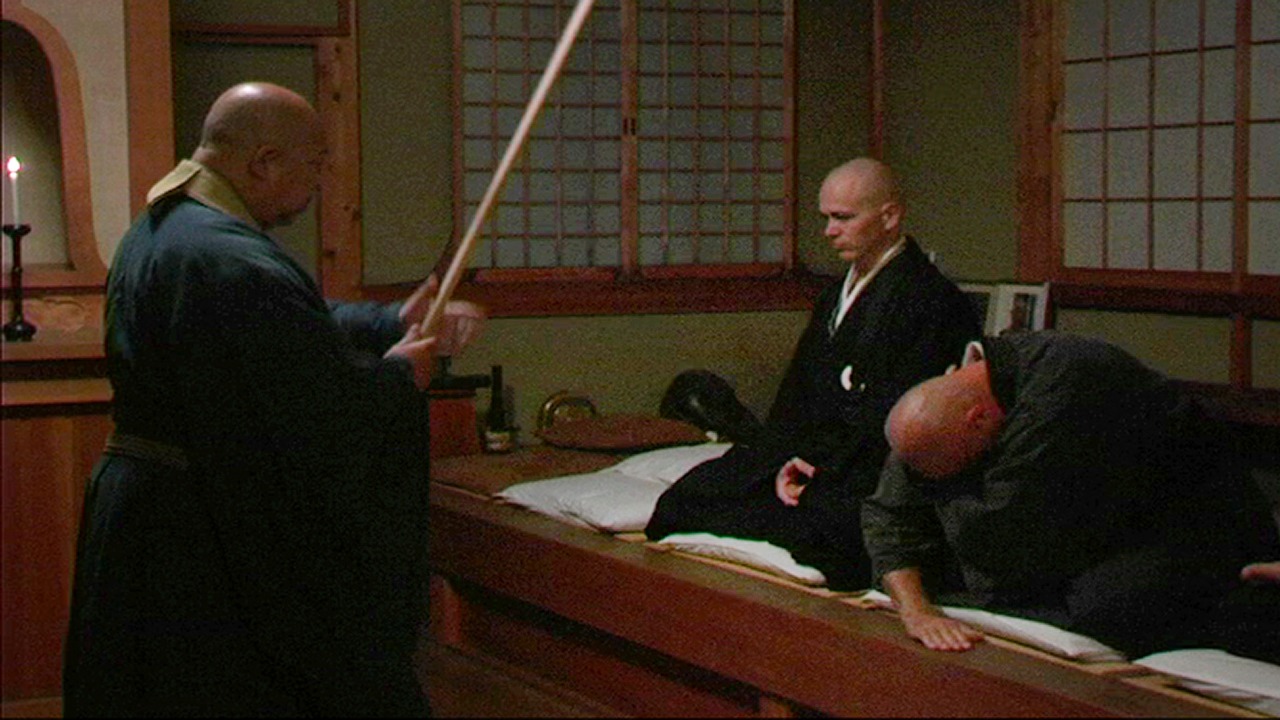
Hozumi Roshi and Zen students at the Kyoto International Zendo
Practical Tips for Zen Meditation Practice
By understanding the basics of Japanese Zen meditation and incorporating practical tips into your practice, you can enhance your meditation experience and cultivate a deeper sense of mindfulness and presence in your everyday life. To enhance your Zen meditation practice, it is important to establish a regular routine and dedicate a specific time and space for meditation.
Creating a tranquil environment free from distractions can help you focus and achieve a deeper level of concentration. In Japan, zazen is conducted in the Zendo, a meditation hall built for this purpose and usually found in Zen temples. No one expects you to have access to a Zendo, but you can create a sense of tranquility in your own living room by shading windows and using soft light. I know people who meditate to natural sounds like rain or the forest. Indeed at some Zen temples I have visited in Japan, monks also practice zazen outside by the Zen garden or ponds, often doing so through the night as a test of their character.
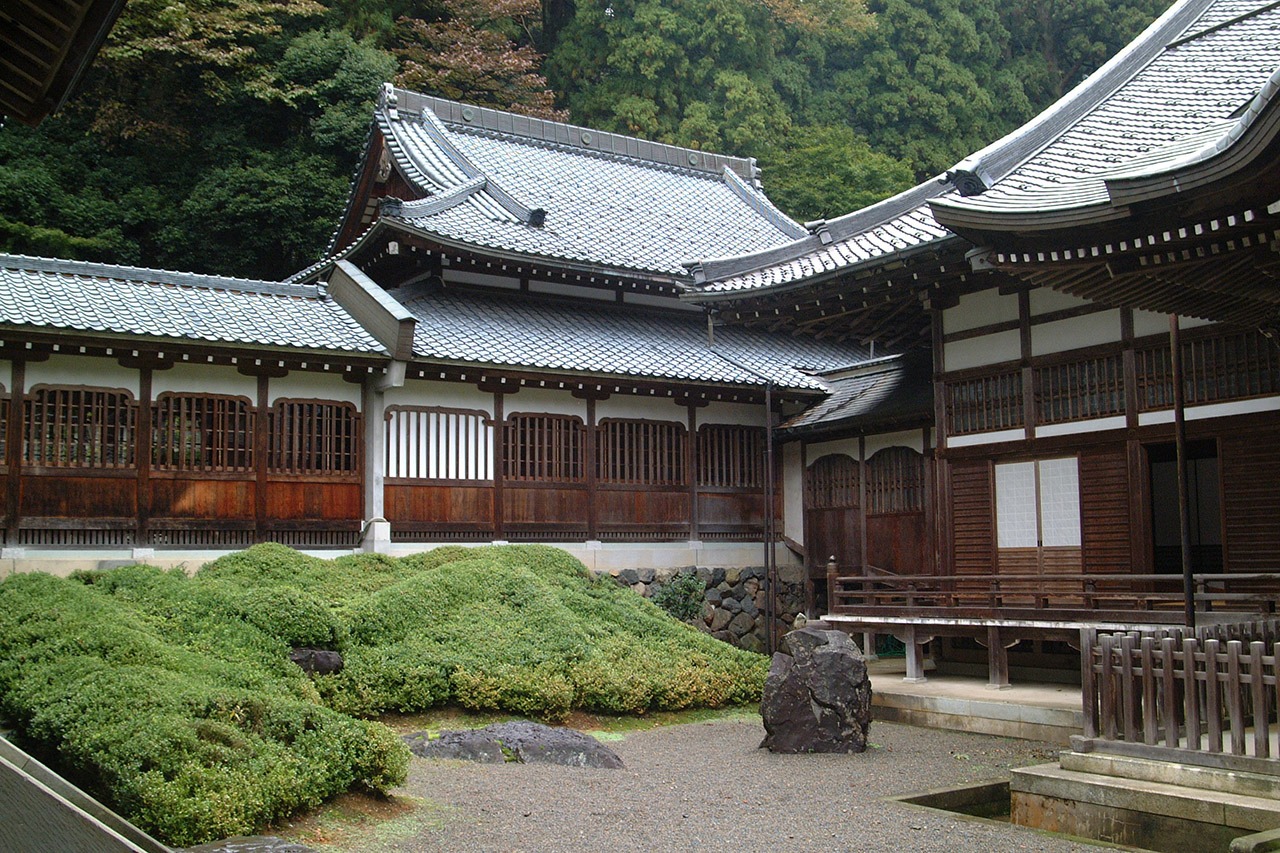
Eiheiji – the beautiful Zen temple founded by Dogen. Photo by Jon Braeley
Japanese Zen meditation, also known as Zazen, is characterized by sitting in a specific posture and focusing on the breath. The posture involves sitting cross-legged on a cushion with a straight back, hands forming a mudra (hand position), and eyes half-open. In our movie, The Zen Mind, we feature a student of Zen guiding us through this sitting process. The goal of Zazen is to cultivate a centered and focused state of mind, free from distractions and thoughts. Practitioners are encouraged to observe their breath and bodily sensations without judgment, allowing the mind to settle and thoughts to pass by like clouds in the sky.
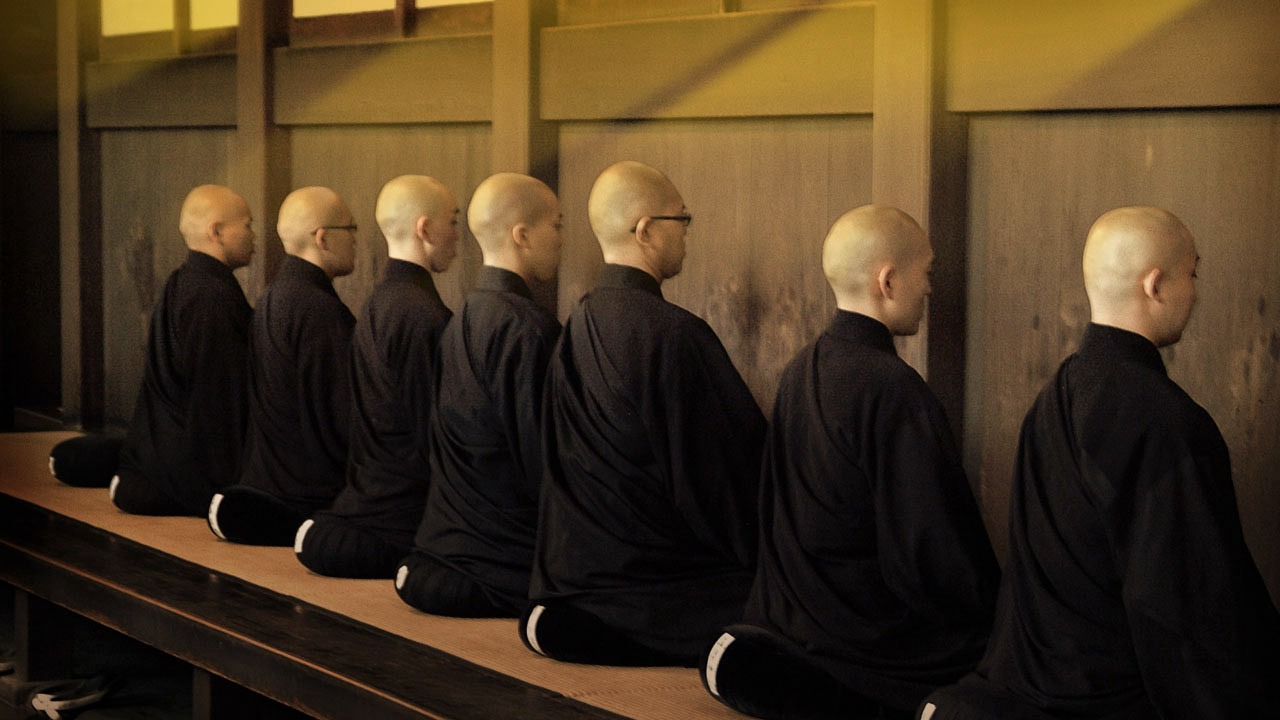
Zazen in the zendo of Shoji-ji, Japan. Photo by Jon Braeley
For my own practice, after sitting correctly, I start by making sure to relax my shoulders and check that my back straight and I am not slumped. Zazen can be a real workout! Then I focus on my breathing, inhaling gently through my nose for about four seconds – if I inhale longer than this, say six seconds, I can feel strain. Then I exhale very slowly through my mouth, sometimes taking eight to ten seconds and with my tongue gently against the roof of my mouth. I focus on my breath filling my lower belly – or hara in Japanese. I try not to control my thoughts but at the same time I try not to think about specific things like work. My mind drifts around a little at the beginning, with thoughts wandering in and out. To control this It helps to feel my belly rising and lowering as I breathe in and out. I do not bother to count my breaths which I know some practitioners recommend. I also do not close my eyes fully but leave them slightly open looking down about few feet in front.
I will add that I supplement meditation each week with a breathing class with my Tai Chi instructor, Hiroshi Shintaku. This takes place in the early morning by the ocean, with palm trees and warm sunny skies. Yes it is paradise and I never take it for granted. I grew up in the north of England with never-ending cold gray skies and rain. By the age of thirty I decided to spend the rest of my life in a warm sunny climate and I kept my promise. Your environment is very important for your health and well-being, so don’t complain about the weather… do something about it!
The Zen Mind Trailer
You can watch an overview of Zen culture and meditation above, in our award winning movie, The Zen Mind. The beautiful soundtrack is by Christopher Yohmei, a grandmaster of the shakuhachi flute. Read more about Yohmei sensei and his wonderful Zen Mind Soundtrack.
Discover Peace and Clarity Every Day
In today’s fast-paced world filled with distractions and stress, finding inner peace has become a priority for many individuals seeking a sense of balance and tranquility. By delving deep within ourselves, we can unlock a profound sense of peace and clarity that has the potential to transform our lives in ways we never thought possible.
Through the simple act of sitting in silence and observing our breath, we open ourselves up to a world of infinite possibilities. We can train our minds to be more attentive and aware, leading to a greater sense of lucidness in everything we do. Being in the present each day, focused on tasks at hand, can build a barrier to stop negative thoughts. As we delve deeper into the practice of Zen meditation, we begin to uncover the tranquility that resides within us at all times, regardless of external circumstances. By letting go of attachment to outcomes and embracing the present moment fully, we can experience a profound sense of calm and contentment from within. Through this practice, we learn to accept ourselves and the world around us, fostering a deep sense of inner peace and strength that can sustain us through life’s challenges and uncertainties.
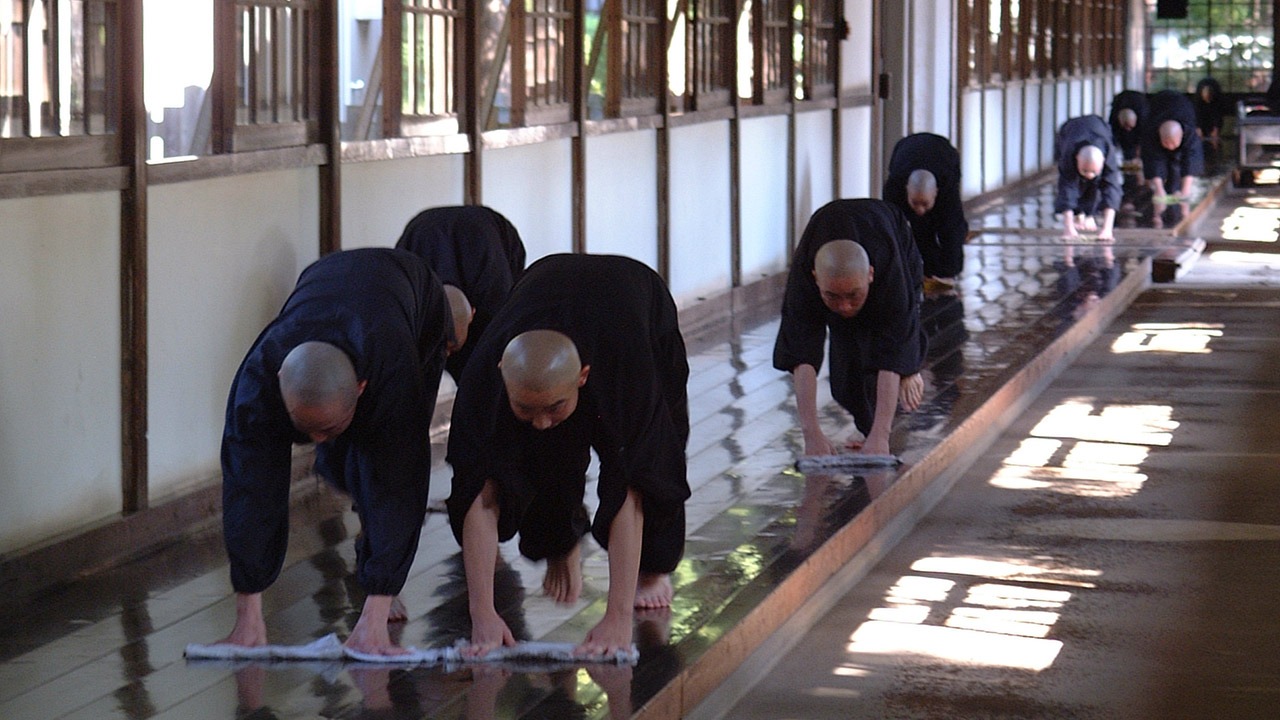
We can apply Zen meditation in all our daily activities and not just sitting in zazen. Being mindful while we are carrying out tasks, such as shopping for food, or cleaning our home or car, is a great way to be in the present and not worrying about tomorrow or things that happened in the past. Monks at Zen monasteries, embrace this ethos in almost everything they do, from sweeping the roads, cleaning wood floors and preparing food for the other five hundred residents… it’s not work if it’s done with mindfulness!
Stress is the Real Enemy
In our daily life, we seem to be experiencing some form of stress each day. Even in a mild form, stress is harmful to our well-being. It can lead to anxiety and depression, and other mental health ailments. Physically someone under stress can also have headaches, muscle tension, abdominal pain, sleep disturbances, decreased immunity to infections, and problems with memory and concentration. Chronic stress has been linked to increased likelihoods of high blood pressure, diabetes, heart attack and stroke.
According to Western doctors, individuals facing stress should embrace self-care, such as eating better, meaning healthier foods, getting restful sleep and exercise daily. A significant number of physicians also agree that deep breathing exercise and mindful meditation can have a dramatic effect on managing stress in our lives.
If I have a bad day I try not to carry this into the next one. Too many of us, me included, let the little things bother us when they should’nt. Nowadays I think of what I want to achieve today without setting goals that are unreasonable, so they don’t follow me into the next day. I try and make an environment that is stress free every day. As I mentioned before, I am fortunate to wake up to blue sunny skies every day. This may not be a priority for you, but I urge you start each day with a smile… even if it’s raining!
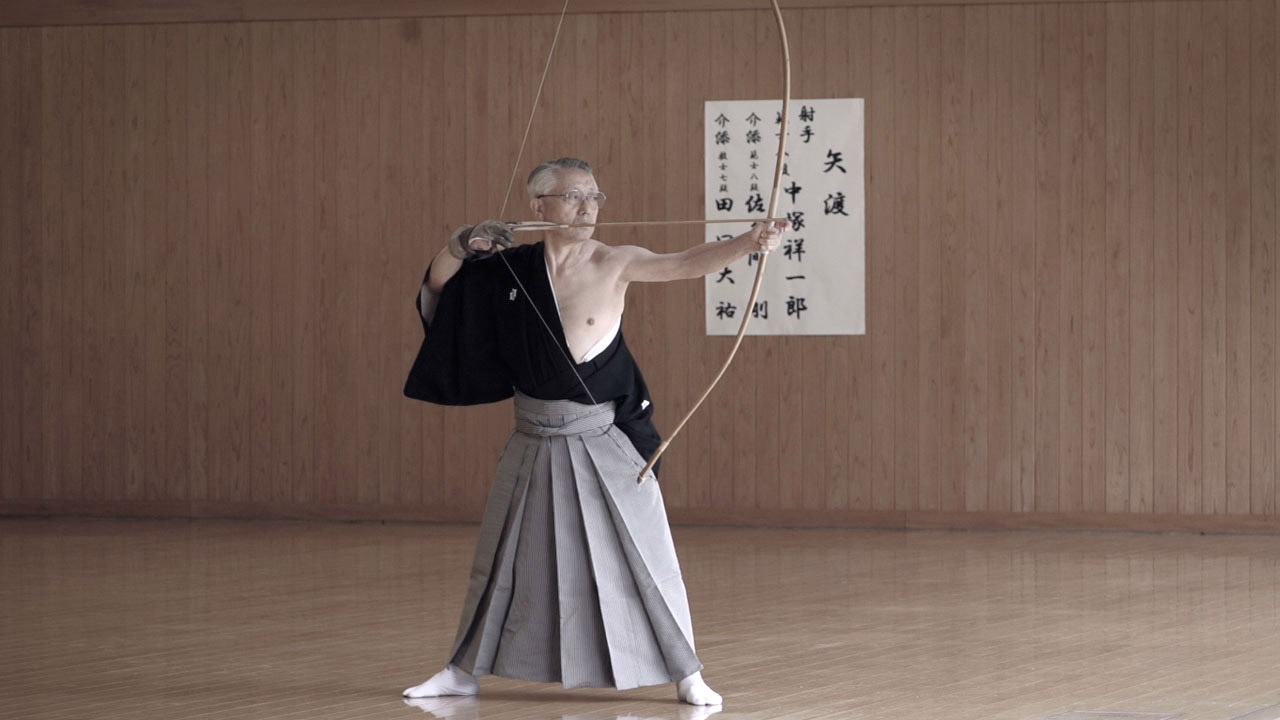
Japanese archery or kyudo is often associated with Zen. Photo by Jon Braeley
Zen and Martial Arts
I came upon Zen from a martial arts background and an increasing interest in the culture and history of Japan with each visit. As my skill and expertise in martial arts increased over the many years, I began to realize what was happening to me was not just physical but mental. I felt the most progress when I looked inward and started to relax. You cannot face an opponent if your mind is troubled or angry. You need mental discipline to control this. Why do you think Muhammad Ali would taunt his opponents in the weeks leading up to a fight? He knew that he would be facing a man, so angry, so full of revenge, that he would make mistakes.
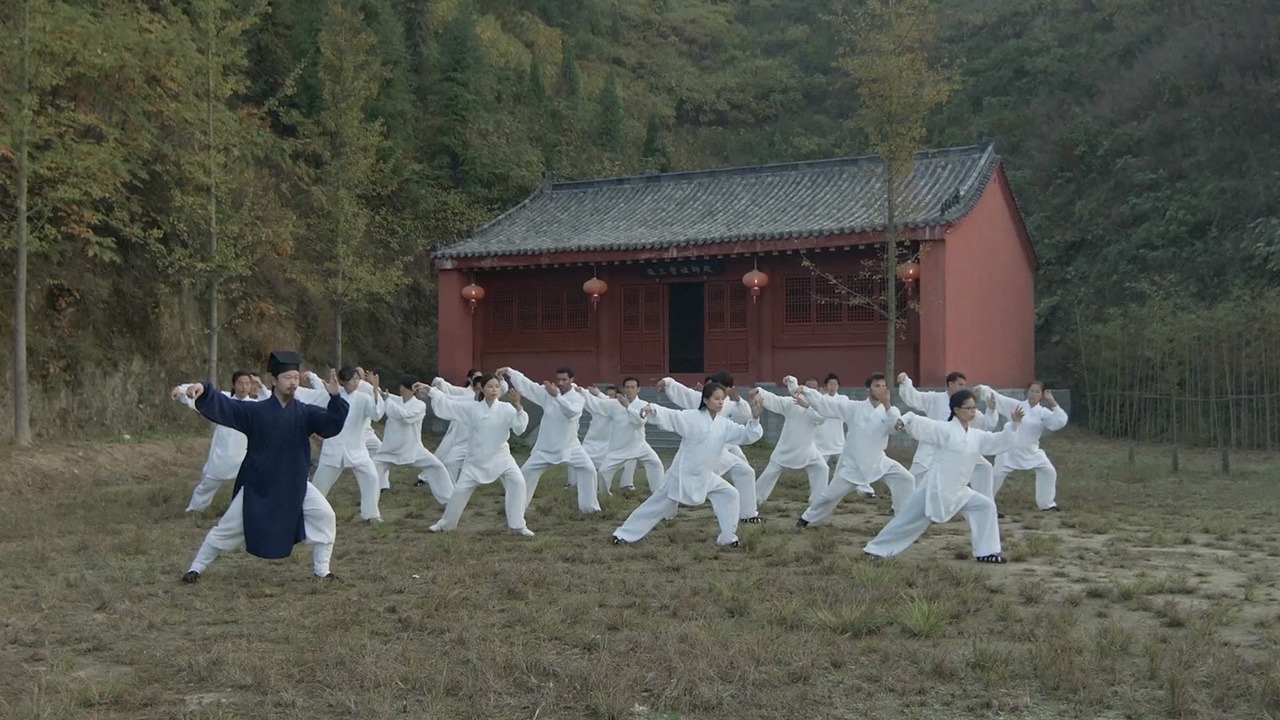
Tai Chi Chuan is also known as moving meditation. Photo by Jon Braeley
Without mental discipline you cannot make good progress in martial arts. When I am teaching, I can easily spot students who are having trouble focusing. They fidget constantly – adjusting their belt or uniform and are affected by any small noise or disturbance in the dojo. Their mind is elsewhere. When it is time to practice with a partner they need to be shown the technique again, as if what I had just been demonstrating had never taken place.
In todays society I understand it’s hard for younger people to be in the present for any length of time. They are constantly distracted and offer no restance to this, their mind like a pinball bouncing around. While I do not expect young people to meditate, I think martial arts can hold the key to unlocking their true potential. I would love for countries to follow Japan and put martial arts in the school curriculum. What a difference that would make.
Conclusion
No matter what walk of life you come from, Zen meditation can offer a pathway to discovering an inner strength and calmness that resides within us, waiting to be uncovered. By committing to a regular practice of mindfulness and self-awareness, we can cultivate a deep sense of serenity and clarity that can guide us through life’s ups and downs.

